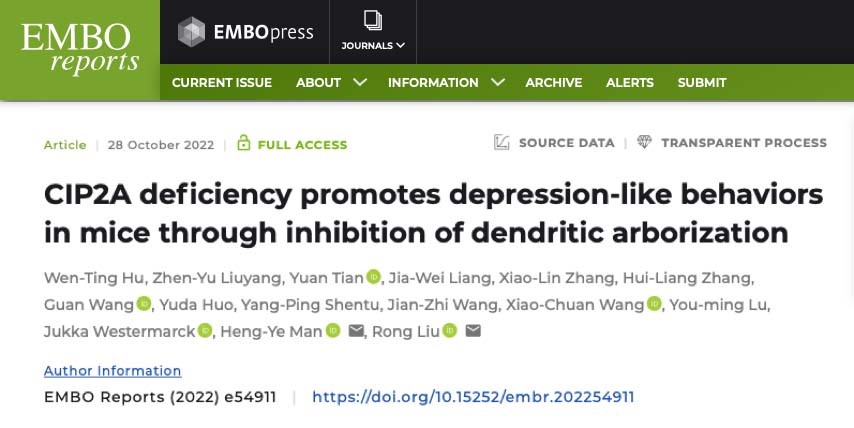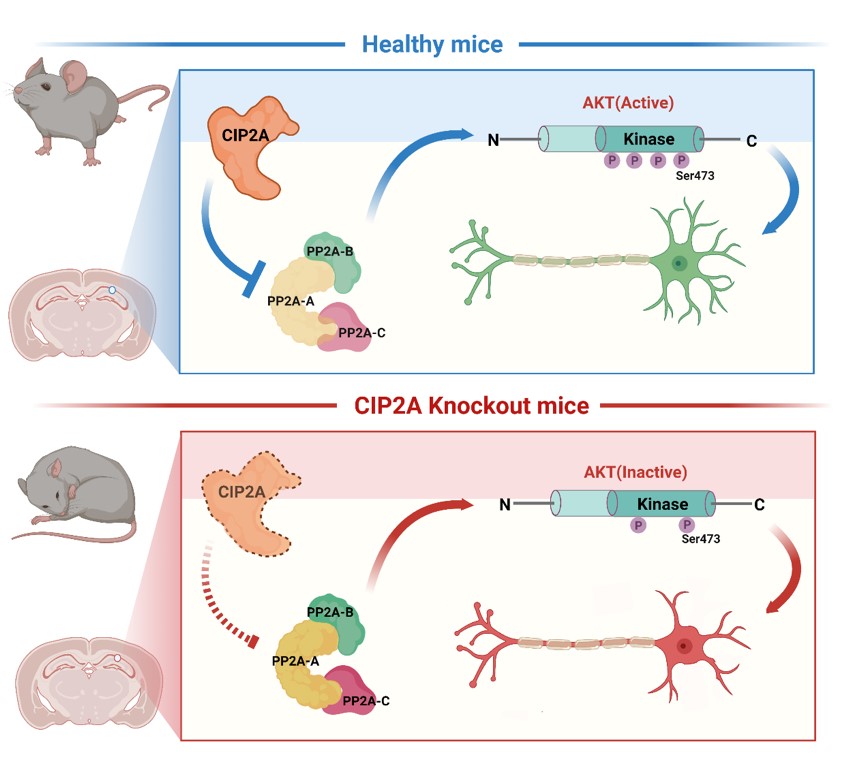On October 28, the Pathophysiology team, led by Prof. LIU Rong of the School of Basic Medicine, published the latest study on the journal《EMBO Reports》, entitled《CIP2A deficiency promotes depression-like behaviors in mice through inhibition of dendritic arborization》which opened out CIP2A protein deficiency may play a key role in mediating depression-related Synaptic plasticity damage.

Major depressive disorder (MDD) is a severe mental illness. Decreased brain plasticity and dendritic fields have been consistently found in MDD patients and animal models; however, the underlying molecular mechanisms remain to be clarified. Here, we demonstrate that the deletion of cancerous inhibitor of PP2A (CIP2A), an endogenous inhibitor of protein phosphatase 2A (PP2A), leads to depression-like behaviors in mice. Hippocampal RNA sequencing analysis of CIP2A knockout mice shows alterations in the PI3K-AKT pathway and central nervous system development. In primary neurons, CIP2A stimulates AKT activity and promotes dendritic development. Further analysis reveals that the effect of CIP2A in promoting dendritic development is dependent on PP2A-AKT signaling. In vivo, CIP2A deficiency-induced depression-like behaviors and impaired dendritic arborization are rescued by AKT activation. Decreased CIP2A expression and impaired dendrite branching are observed in a mouse model of chronic unpredictable mild stress (CUMS). Indicative of clinical relevance to humans, CIP2A expression is found decreased in transcriptomes from MDD patients. In conclusion, we discover a novel mechanism that CIP2A deficiency promotes depression through the regulation of PP2A-AKT signaling and dendritic arborization.

This study was carried out byProf.LIU Rong's team of the Department of Pathophysiology Medicine, School of Basic Medicine of HUST, and Prof. MAN Hengye's team of Boston University. HUST is the first unit to complete the study, HU Wenting and LIU Yangzhenyu, phd Pathophysiology from the School of Basic Medicine, are co-lead authors.
Prof.LIU Rong is the scientific research backbone of the key laboratory for critical diseases of the nervous system of the Ministry of Education and a member of the Special Committee on Signal Transduction of the Chinese Pathophysiology society, led the research team to carry out major neurological diseases such as Alzheimer's disease, depression mechanism research for many years, and achieved fruitful results. This study was supported by the National Natural Science Foundation of China and the Huazhong University of Science and Technology Innovation Research Fund.
Paper link://www.embopress.org/doi/full/10.15252/embr.202254911
